Although the sky had been brilliantly clear all day, an eerie fog enveloped us a mile from the beach—
the tangible passage to another world.
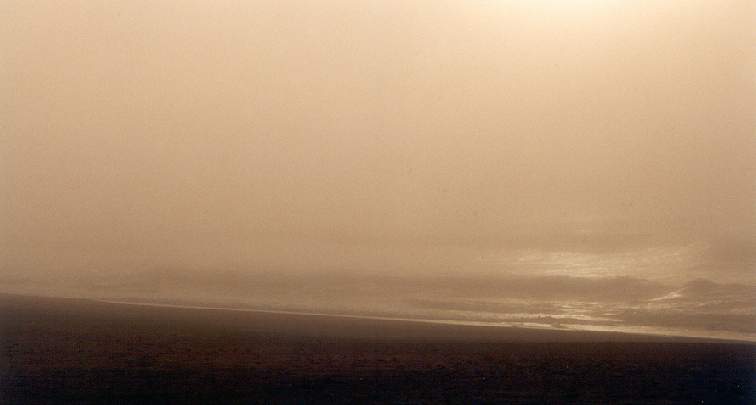
Because people are so scarce,
Nature rules, in a way that once was normal.
You understand that here.
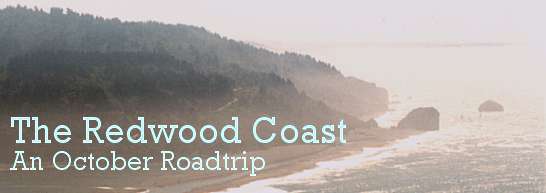
There's a reason the Lost Coast is still lost. The Coast Range rises here as two ridges of brash young mountains. The narrow, twisting roads slump ominously down toward the valleys, as if the mountains want to shake them off. If there's road signs here, I've never spotted them. Those big Highway 1 motorhomes simply don't make it very far here, and most sedan drivers don't want to. Rather than the pedestrian Freedom of the Open Road, this drive is an ordeal, in the classical sense—a ritual of passage.
|
Although the sky had been brilliantly clear all day, an eerie fog enveloped us a mile from the beach— |

|
|
Because people are so scarce, |
|
The salt wind stirred the fog. |
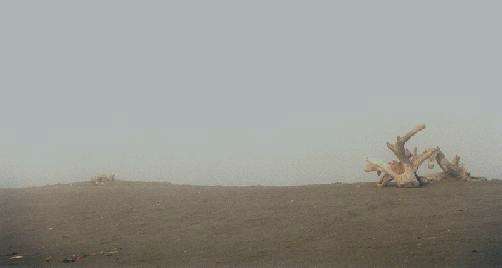
|
|
GoGo settled into the sandy campsite, |
|
Whenever sunset broke through eddies of fog, |
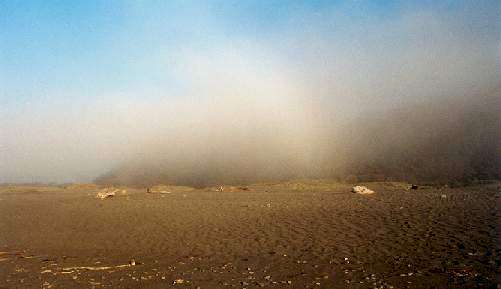
|
|
sun dogs scampered on the sand. |
|
By morning only wind-driven tatters of fog remained. |
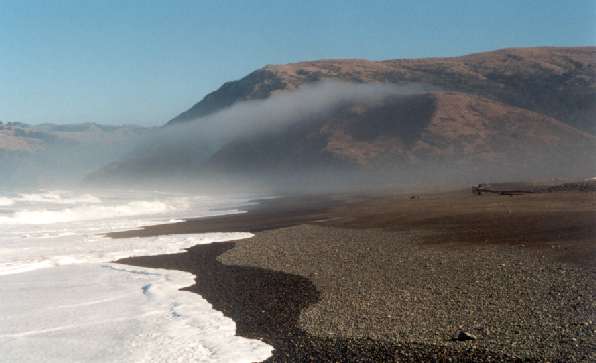
|
Time for this animal to leave his den and walk about in the world.
|
Other animals had beaten me to it. |
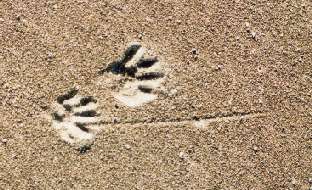
|
|
Above the high tide line, |
|
Sea gulls patrolled the breakers, searching for food that couldn't fight back. |
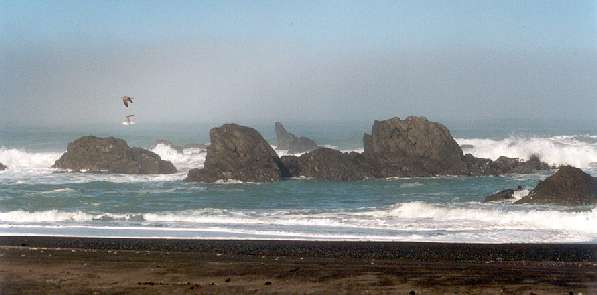
|
|
Sea gulls represent spare, fundamental, day-to-day life. |
|
The gray seals came close and studied me, |
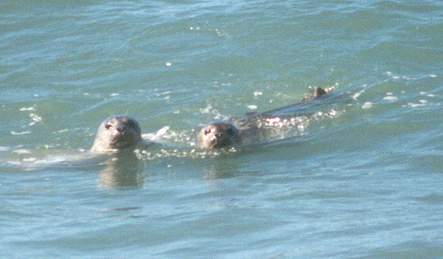
|
|
Seals are curious, |
|
Cormorants and sea gulls coexisted peacefully, well off shore. |
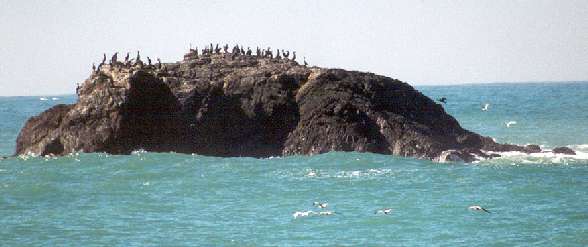
|
|
Cormorants spend their days posing and preening. |
|
Pelicans cruised low above the deeper waters. |
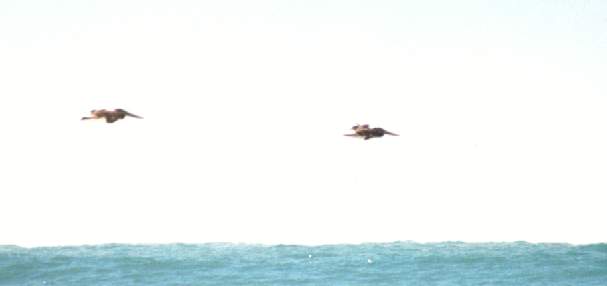
|
|
Pelicans: large, strong sea birds. |
|
A mile beyond the tide pools stood Punta Gorda Lighthouse. |
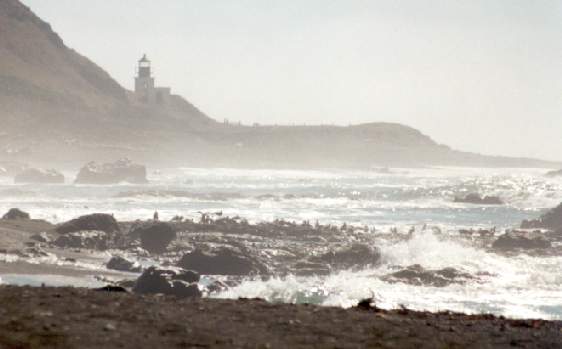
|
|
Tidepools behave as a species of animal. |
|
This turkey vulture came from a long way off—
perhaps to pose, |
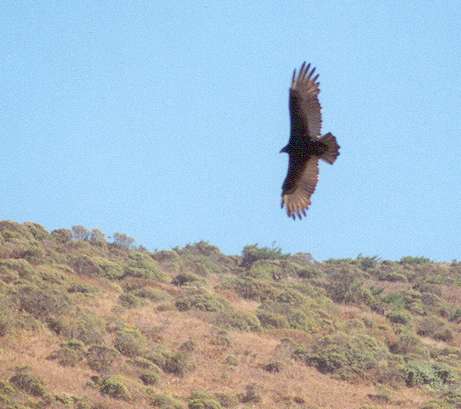
|
|
Turkey vultures circle in pairs, very distant from each other, |
|
Mendocino
|
Back to the Essays Index
NuMoon Home
© 2001 NuMoon Creations